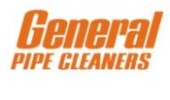
Push is on for hydronics-specific certification
January 26, 2015 | By Updated, first appeared January 16, 2015
CIPH and CHC work with regulator to resolve dilemma.
A forum led by the Canadian Institute of Plumbing & Heating (CIPH) on January 15, 2015 at the Mississauga Convention Centre in Mississauga, ON, was directed to those who may be impacted by the Ontario College of Trades (OCOT), particularly those working in hydronics. Bob Onyschuk, director-compliance and enforcement division, explained OCOT’s powers of enforcement over the skilled trades and what liabilities and responsibilities fall on to the compulsory trades.
The Canadian Hydronics Council (CHC) has been meeting with OCOT to try to resolve the ongoing issue of who does hydronics. According to OCOT, a plumber must do the work. “Our main goal is to protect the public interest,” said Onyschuk. “We are trying to modernize the skilled trades. The plumbing that was done 30 years ago isn’t what you’re doing today.
Onyschuk asked, “How do we square the circle, the work that you do that I may see as plumbing but you see as something else? I would like to have a permanent solution to your problem. This has not been done before. We can’t change things [snap]. That public interest is a big thing for me.”
As Jeff House, training manager with Jess-Don Dunford, pointed out in an e-mail to HPAC after the event, “If OCOT is saying and enforcing that only plumbers and pipe fitters can do hydronics, and hydronics is really a separate but not recognized trade or sub-trade, a good number of plumbers and pipe fitters have not been exposed enough to the opportunities of hydronics, nor were they trained and had a chance to hone their skills in hydronics. Hydronics is a skill learned over time with training outside of the licence, provided by many different sources.”
Until the situation is resolved, Onyschuk advised attendees to “be nice” and “don’t be too quick on the trigger,” and perhaps most importantly, to contact him directly if there is an issue.
In a letter from CIPH to Onyschuk following the event, CHC program manager Matt Wiesenfeld noted that the intent is to continue the dialogue between the organizations “on the evaluation and recognition of the national hydronics installer certification program as a pathway to either a new trade, sub-trade or alternate solution that makes it possible for those competent in the installation of hydronics.”
The letter also stated CIPH’s intent to have a representative on the most relevant OCOT board. “To this end we will be putting a name forward and seeking guidance from your staff in the interim as to whether we can observe at these meetings to educate ourselves and to understand the scope and mandate of the organization.”
Other concerns raised by the audience included alarm companies getting involved in controlling HVAC systems, and the handling of complaints. It was suggested that complaint reports should be anonymous, given a file number, to eliminate bias by the committees appointed to deal with complaints and discipline.
Onyschuk emphasized the opportunity for members of CIPH and CHC to get involved with the governance of OCOT. “Because of this system you have no one else to blame. We have put the process in place−all you have to do is get engaged.”
The OCOT event followed the Ontario Region Business Meeting at the same location where guest speaker David Miller discussed the GTA’s winning bid for the Pan Am Games and the preparations for that event. In his opening Miller commended CIPH for handling the Federal government in the right way: “walking softly and carrying a middle-size stick.”
In the presentation, which focused on Toronto venues, Miller noted that the reasons to bid included job creation but really it was about the athletes. “This is really about young Canadian athletes who never get to perform in front of Canadians.”
When asked about the successful Games bid being a precursor to another Toronto Olympic bid, Miller noted that, “It’s all politics−we should have won Atlanta. You need to check out the politics to see if Canada has a chance, otherwise, I wouldn’t waste the money.”
The next Ontario Region business meeting will be held March 5, 2015.
BACKGROUND
OCOT membership is mandatory for 150,000 professionals who work in the 22 trades in which certification is compulsory. This includes plumbers, residential air conditioning systems mechanics, refrigeration and air conditioning systems mechanics, sprinkler and fire protection installers and sheet metal workers.




